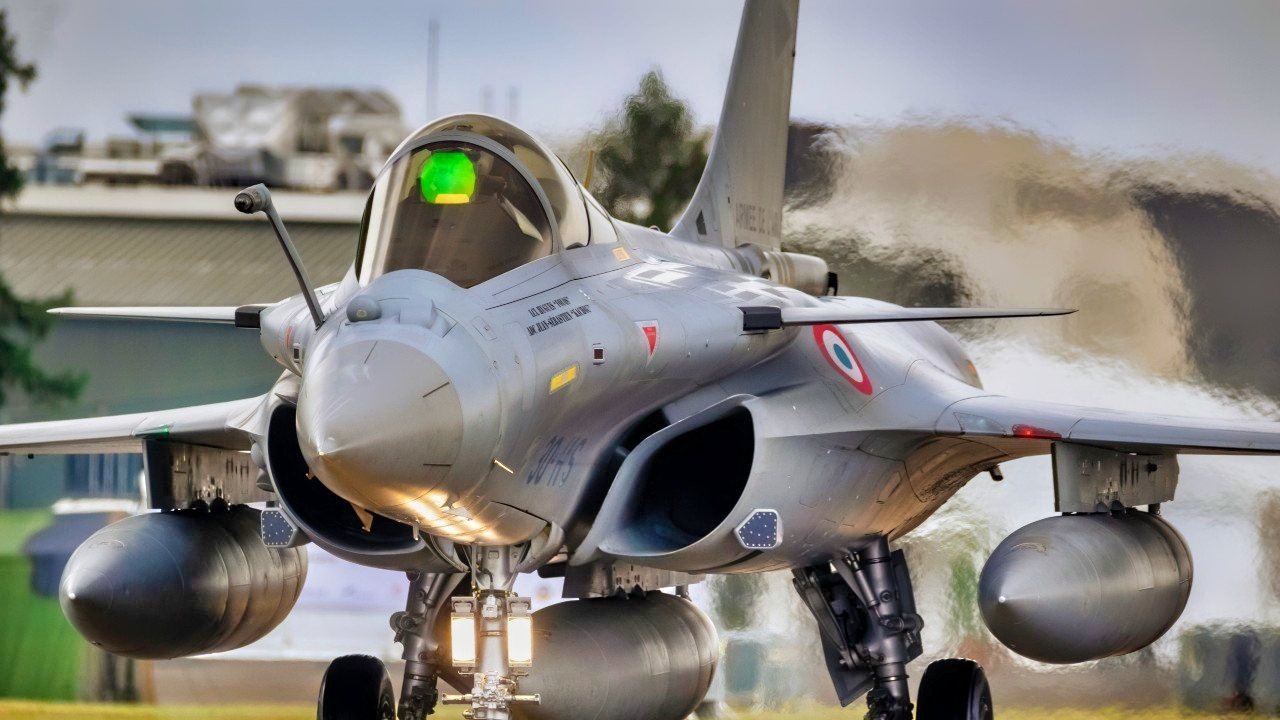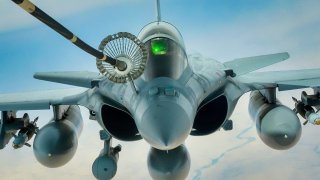Russia Loses Tu-22M3 Bomber as Two French Rafale Fighters Collide During Exercise
This week, military aviation accidents claimed multiple aircraft and lives, with incidents involving a Russian Tu-22M3 bomber and two French Rafale fighter jets. The Tu-22M3, a significant Cold War-era asset for Russia, crashed in East Siberia due to a technical fault, though the crew survived.
Summary and Key Points: This week, military aviation accidents claimed multiple aircraft and lives, with incidents involving a Russian Tu-22M3 bomber and two French Rafale fighter jets. The Tu-22M3, a significant Cold War-era asset for Russia, crashed in East Siberia due to a technical fault, though the crew survived.
-The loss adds to Russia's aviation challenges during the ongoing conflict in Ukraine. Meanwhile, in France, two Rafale fighter jets collided mid-air during a training exercise, killing two pilots and injuring a third.
-Investigations are underway in both countries to determine the causes of these accidents.
Multiple Military Aircraft Crashes This Week – Two French Rafales and a Russian Tu-22M3 Bomber
Flying military aircraft, even in peacetime comes with certain risks. That point that was reinforced this week, as Russia reported that one of its Tupolev Tu-22M3 bombers crashed in the Irkutsk Region in East Siberia. This should also be seen as another setback for the Kremlin, as the Cold War-era bomber has been seen as a significant asset for Russia's aerospace forces, as the aircraft was designed primarily for theater-level engagements.
The Tupolev Tu-22M3 long-range bomber (NATO reporting name "Backfire") is a modernized version of the Cold War long-range supersonic, variable-sweep wing aircraft that were designed to strike ground and sea targets with supersonic missiles and bombs. The Tu-22M3 has an operating range of 7,000 km (4,350 miles) and is capable of carrying nuclear weapons.
Only 57 were reported to be in service as of the beginning of this year. One was shot down earlier this year near Ukrainian territory while carrying out a missile attack. It was the first loss of a Tu-22M3 in the ongoing conflict, although Georgian forces had shot down another in the 2008 South Ossetian War.
The bomber lost on Thursday was reportedly the result of a technical fault, Russian state media outlet TASS reported.
"On August 15, 2024, a Tu-22M3 aircraft crashed while performing a routine flight in the Irkutsk Region. The crew ejected. Their lives are not in danger. The aircraft crashed in a desolate area. There is no destruction on the ground. According to preliminary data, a technical fault is behind the crash," the Russian Ministry of Defense said in a statement.
Pair of French Fighters Also Lost in Aerial Mishap
The crash of the Russian bomber came just a day after two French pilots were killed when their Dassault Rafale fighter jets collided in mid-air during a training exercise near the town of Colombey-les-Belles in the Vosges region. A pilot instructor and trainee in one of the fighters were killed, while the pilot from the other jet was able to eject and suffered minor injuries.
"We learn with sadness the death of Capt. Sebastien Mabire and Lt. Matthis Laurens in an air accident in a Rafale training mission. The nation shares the grief of their families and brothers in arms at airbase 113 in Saint-Dizier" French President Emmanuel Macron said in a statement on X, the social media platform formerly known as Twitter.

An investigation is now underway to determine the cause of the accident, but pilot error is believed to have been to blame.
Accidents involving the multirole French fighter are reported to be rare, though a Rafale crashed in December 2007 after its pilot became disoriented. It was the first crash of the aircraft, while less than two years later in September 2009, another pair of Dassault Rafales crashed as they attempted a landing on the French Navy's flagship Charles de Gaulle.
The Dassault Rafale – which means literally "gust of wind," or "burst of fire" in a more military sense – was conceived for use by the French Air Force and Navy as an "omnirole" fighter, meaning that it would replace seven types of combat aircraft in operation at the time of its development. It was developed to carry out a wide range of missions, including air-defense/air-superiority, anti-access/area denial, reconnaissance, close air support, dynamic targeting, air-to-ground precision strike/interdiction, anti-ship attacks, nuclear deterrence, and even buddy-buddy refueling.
Author Experience and Expertise: Peter Suciu
Peter Suciu is a Michigan-based writer. He has contributed to more than four dozen magazines, newspapers, and websites with over 3,200 published pieces over a twenty-year career in journalism. He regularly writes about military hardware, firearms history, cybersecurity, politics, and international affairs. Peter is also a Contributing Writer for Forbes and Clearance Jobs. You can follow him on Twitter: @PeterSuciu. You can email the author: [email protected].
Image Credit: Creative Commons and/or Shutterstock.


